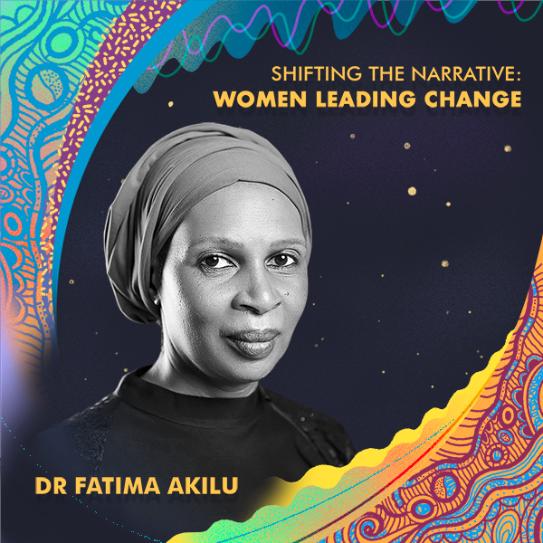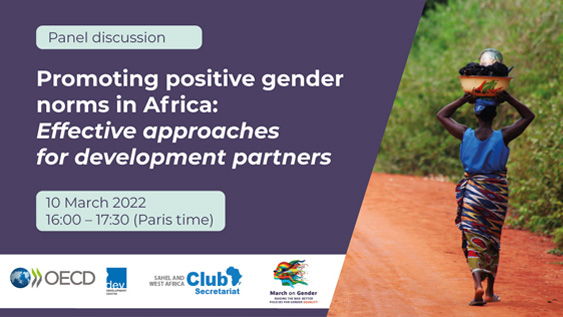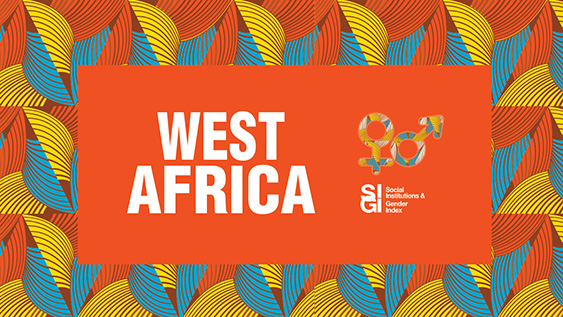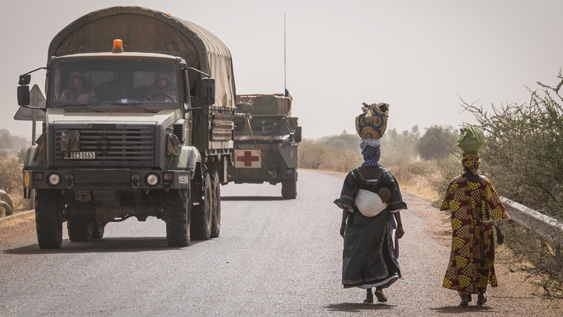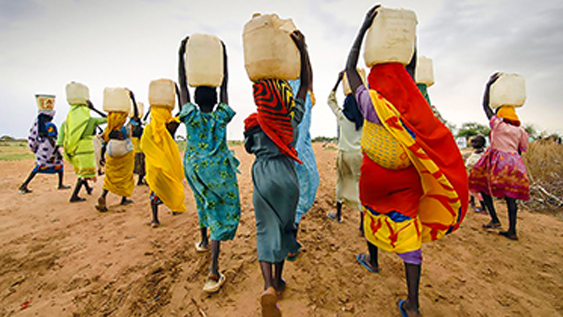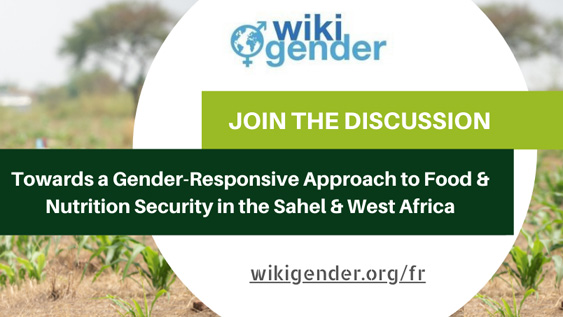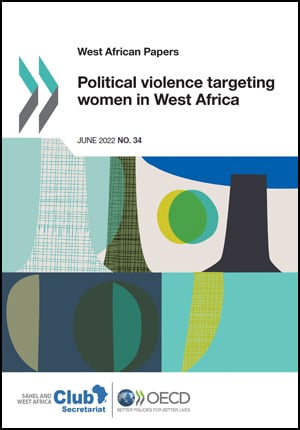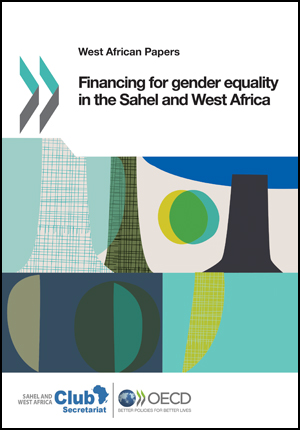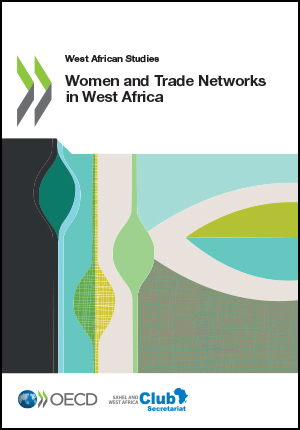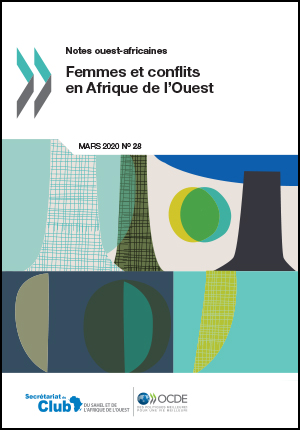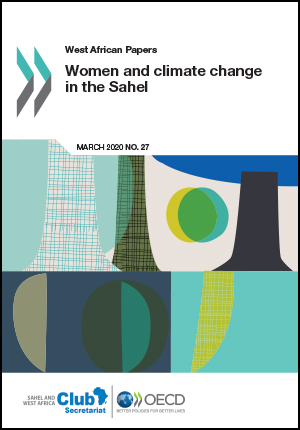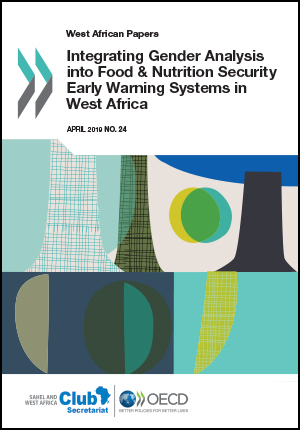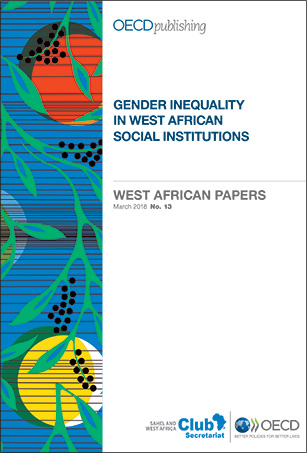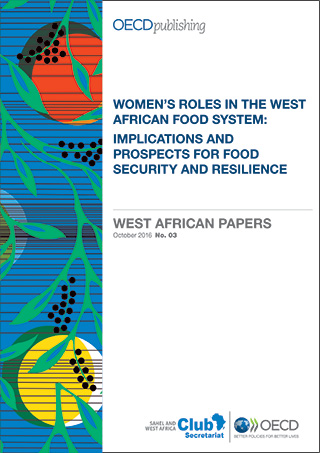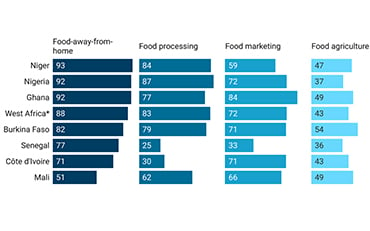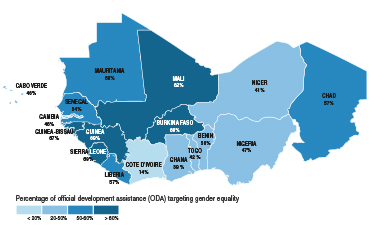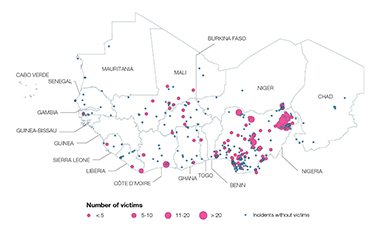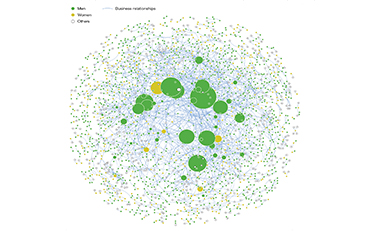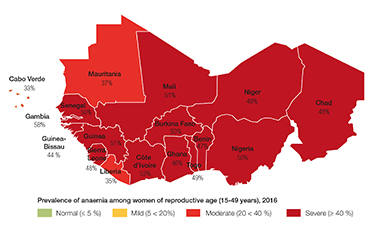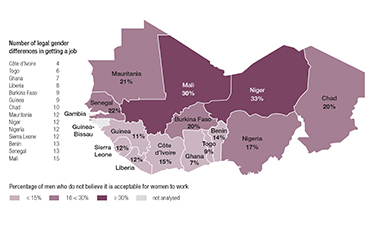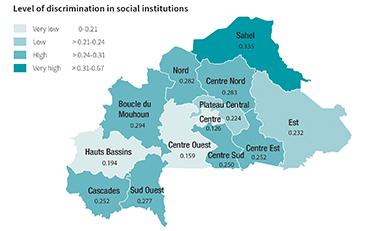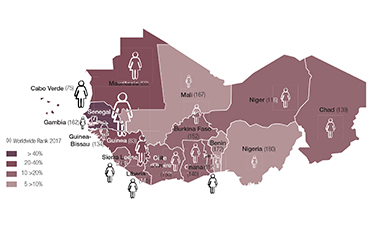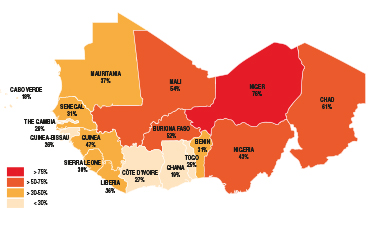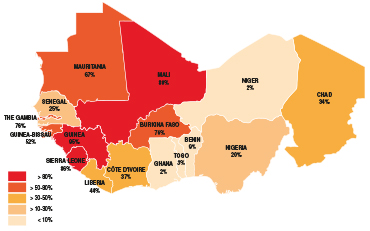Gender
Levels of gender inequality in the Sahel and West Africa are among the highest in the world. Multiple interconnected crises - security, health and food – exacerbate gender inequalities and heighten risks for women and girls. In this context, gender is an important transversal theme across the SWAC’s programme of work. The gender dimensions of food security, political violence and climate change reveal significant challenges, but they also show how women can inspire progress, generate growth and be a source of transformative change.
Dialogue
Shifting the Narrative: Women Leading Change
This podcast series tells the stories of women as civil society actors, activists, authors, leaders, health and humanitarian workers, youth representatives, traders and entrepreneurs in the Sahel and West Africa. We gather first-hand examples of their outstanding work within local communities as well as their important contributions to advancing gender equality and positive change. These conversations also aim to better connect the Sahel and West Africa Club’s evidence-based analysis with civil society advocacy and action through dialogue and knowledge exchange.
Dr Fatima Akilu is the Executive Director of the NEEM Foundation, a leading crisis management organisation based in Nigeria.
Our host for this podcast episode is Dr Olajumoke (Jumo) Ayandele. She is a postdoctoral Research Fellow at New York University Centre for the study of Africa and the African Diaspora.
March on Gender Event: 10 March 2022
Panel discussion: Promoting positive gender norms in Africa: Effective approaches for development partners, 10th March 4pm - 5.30pm
Co-organised by SWAC, the OECD Development Centre and the Development Co-operation Directorate.
Objectives:
- Discuss the role of development partners in addressing the underlying drivers of gender inequality and promoting transformative policy making and development programming
- Identify how development partners can further engage in accelerating social change, especially in terms of more and better financing for gender equality
- Propose policy actions to address challenges to gender inequality from a financing perspective
High-Level Policy Dialogue on Gender Equality
SWAC and the OECD Development Centre, in collaboration with the Austrian Development Agency, co-organised two policy dialogues with grassroots organisations and policy makers, on addressing social institutions governing women and men’s behaviour to enhance gender equality.
Formal and informal laws, social norms and practices constitute structural barriers that women and girls face throughout their lifetime. Despite some progress in recent years, women in West Africa still face gender-based discrimination across all spheres of life.
DevTalks: Women and Conflict
During the last decade, conflict has become more violent and widespread in West Africa with increasing numbers of civilian casualties, particularly in Central Sahel and Nigeria. This DevTalks aimed to contribute to a process of mutual learning and dialogue to inspire more gender-focused responses to conflict in West Africa and draw on lessons learned.
Speakers highlighted the importance of dialogue and action at local and community levels to:
- initiate change in social norms;
- empower and support women who have experienced violent extremism and wish to reintegrate society;
- build more inclusive peace and mediation processes; and
- re-build trust between communities and security forces.
DevTalks: Towards a gender-responsive approach to food and nutrition security
Women play a pivotal role in a wide range of activities supporting food and nutrition security. They are the powerhouses of the Sahel and West African food economy. Nevertheless, access to affordable and nutritious foods is beyond the reach of many women and girls.
This DevTalks explored the importance of gender-responsive approaches to food and nutrition insecurity, highlighting that many responses still tend to operate in silos, narrowly focusing on improving women’s agency or access to information, instead of applying a truly intersectional approach that addresses the structural barriers that hamper their food and nutrition security.
Wikigender: Towards a Gender Responsive Approach to Food & Nutrition Security
In the context of compounding food and nutrition, security, climate and health crises, the OECD Development Centre and the Sahel and West Africa Club Secretariat (SWAC) hosted an online discussion on the Wikigender platform in partnership with the Agence française de développement (AFD), the Permanent Interstate Committee for Drought Control in the Sahel (CILSS) and the G5 Sahel. The discussion, “Towards a Gender-Responsive Approach to Food and Nutrition Security in the Sahel and West Africa”, focused on three key issues:
- the importance of gender in addressing food and nutrition insecurity,
- best practices around food and nutrition security programming, and
- what is needed to engage decision-makers and amplify women’s voices.
Publications
Women around the world are facing unprecedented levels of targeted political violence. This is also true in West Africa. Read online »
The Sahel and West Africa continue to face significant challenges in advancing towards gender equality and women’s empowerment. Read online »
Women make a significant contribution to West Africa's food economy, perpetuating a long tradition of commerce and participating in cross-border trade and regional outreach. Read online »
The objective of this note is to analyse the temporal and spatial evolution of violence against women in West Africa over the last 20 years. Read online »
The purpose of this paper is to explore the gendered impacts of climate change in the Sahel. Read online »
Integrating gender dimensions into early warning systems is critical to support equitable crisis prevention and response. Read online »
This paper explores the formal and informal laws, social norms and practices restricting women’s rights and empowerment opportunities across West Africa. Read online »
This paper examines how women’s empowerment is essential for food and nutrition security and resilience in West Africa. Read online »
Data
Women and the food economy
Women play a central role in the food economies of the Sahel and West Africa, accounting for 51% of total employment. More
Financing for gender equality
Official development assistance (ODA) for gender equality in the Sahel and West Africa has increased. More
Women and conflict
Over the last decade, conflicts have become more violent and widespread in West Africa. More
Gender trade networks
Women face many obstacles limiting their participation in trade. More
Women and anaemia
Fourteen countries have a prevalence of over 40% (severe) among women of reproductive age. More
Access to employment
The employment rate of women in sub-Saharan Africa (59.3%, ILO, 2017) is the highest in the world (45.8%). More
Gender equality
Burkina Faso ratified all regional and international conventions on gender equality, adopted a national gender policy in 2009. More
Women in parliament
In 2006, Liberian President Ellen Johnson Sirleaf became the first female head of state in Africa. More
Child marriage
Seven West African countries rank among the top 20 countries in the world. More
Female Genital Mutilation
The WHO estimates that over 130 million girls and women today have undergone female genital mutilation/cutting. More
Resources
Members', Observers' & Partners' Gender Policies
West African Countries' Gender Policies
Guinea-Bissau
National Action Plan for the Policy for Gender Mainstreaming in Access to Energy
2017, Portugese
National Action Plans for the Women, Peace and Security Agenda
Burkina Faso
2013-16
Côte d'Ivoire
2008-12
Gambia
2012
Ghana
2020-25
Guinea
2009-13
Guinea-Bissau
2010-11
Liberia
2019-23
Mali
2019-23, French
Niger
2020-24, French
Senegal
2011-15, French
Nigeria
2017-20
Sierra Leone
2019-23
Togo
2011-16, French
Other Resources
FAO, IFAD, WFP
Rural women and girls 25 years after Beijing: critical agents of positive change
2020

